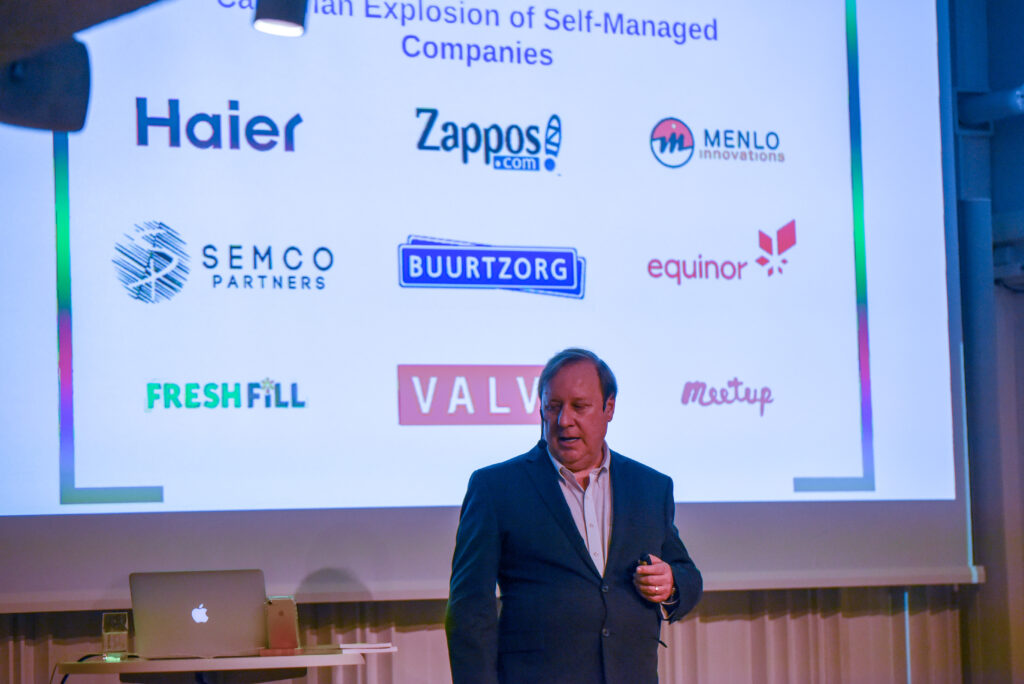M: Hi, Doug. Great to have you in the Leading Complexity program for the fall. You have been a guest with Crisp before, but for those who don´t know you, who are you?
D: Thanks, Michael. I am Doug Kirkpatrick. I helped start Morningstar over 30 years ago here in Northern California. Morningstar organized around very simple principles and consequently grew from zero to become the largest processor of tomatoes in the world.
Now a billion-dollar company with thousands of employees is still organized around very simple principles and managing great complexity using those principles.
For the last 20 years, I’ve been a consultant, writer, speaker, and author, sharing the principles and practices of organizational self-management with leaders and organizations worldwide, including with Crisp.

M: Great, thanks. So how would you describe the complexity?
D: Well, complexity is using bureaucratic rules to organize an activity in organizations, and it started in the 1840th with the Industrial Revolution with companies trying to figure out how to create gigantic global or at least continent-wide organizations with rudimentary vestigial information systems and communication systems, creating great bureaucratic organizational charts, rules, and cumbersome regulations to sort of control and manage these large activities.
And while that system worked fine, given the information systems at the time, it no longer works very well. We still have the same bureaucratic rules and regulations in a world where information moves at the speed of light. People can react to environmental signals and make decisions at the level closest to the customer.
So, we’re in a strange liminal space trying to manage cumbersome bureaucracy that adds zero value. In fact, it creates negative value for the world. At the same time, we’re trying to make great progress and value for human beings worldwide.
So this mismatch of complexity and basic human needs creates lots of tension, and there are ways to get around it. Many of which I learned at Morningstar, and that’s what I like to share.
M: Great. So if you were to share a key message for leaders struggling with the complexity of bureaucracy, what would be the key thing for them to think about in navigating complexity?

D: Well, I don’t think anyone said it better than DeHoc. He was the founder of Visa. He wrote a book on Chaordic organizations, balancing chaos and order. He famously said that complex rules cause simple stupid behavior, but simple rules allow for complex, intelligent behavior. I want leaders to opt for complex, intelligent behavior achievable only through very simple rules.
M: That’s great advice. I love DeHoc and Chaordic organization. That’s a fantastic book. Looking forward to having you in the program on November 2nd.
D: Thank you very much.
Watch the video interview in our LinkedIn post
Learn more about the program and Doug’s session by visiting http://www.leadingcomplexity.com



